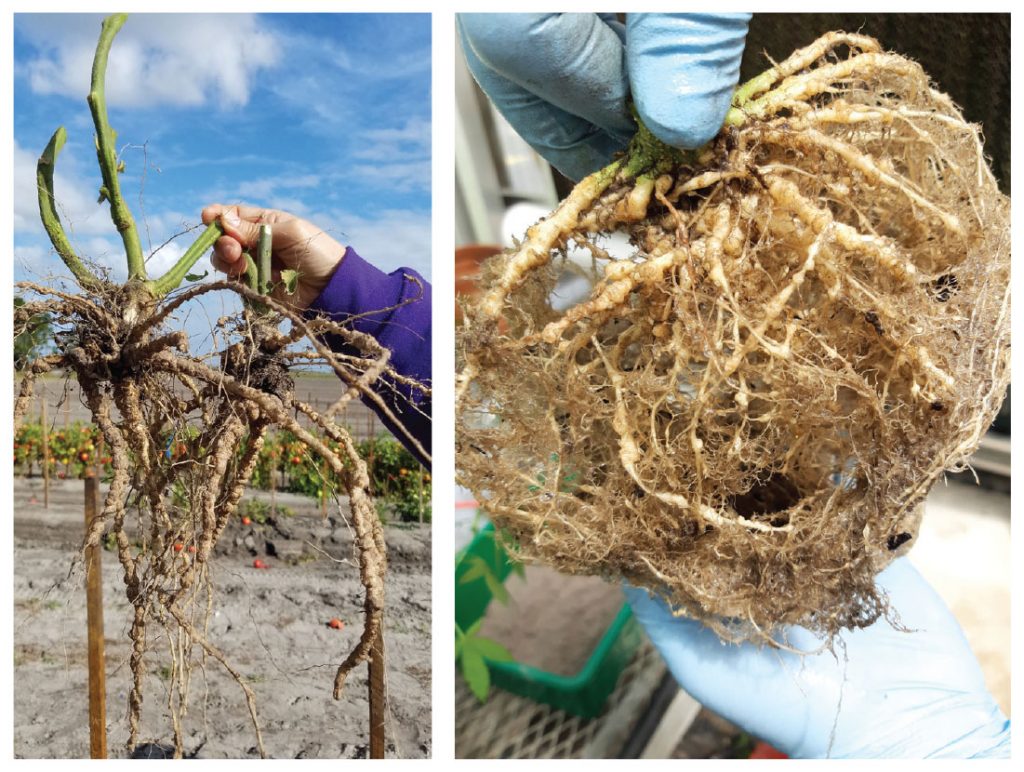
By Clint Thompson
Like other specialty crops grown throughout Florida, hops are not immune to nematode damage. However, they may be able to tolerate them better than others, says Johan Desaeger, Assistant Professor of Entomology and Nematology at the University of Florida (UF) Gulf Coast Research and Education Center.

“One thing that we noticed with hops, and I think that’s common with a lot of perennial crops, because hops are a perennial; I think up there in Washington state, they can keep them up to 10 years – but we do see that over time, they seem to tolerate (nematodes),” Desaeger said.
“When you look at the root system of a hops plant, it’s amazing. These roots are huge. They’re expansive. They’re thick. I think they go as deep as the soil goes. My theory is as these hops start growing and developing, they outgrow that nematode damage and can tolerate it. The key is to really get them established. Once they get established, I think they can deal with the nematodes as they grow and get older.”
Hops Research
He estimated that when UF scientists started researching hops around four or five years ago, they planted multiple varieties. Some did not grow well at all, due to stunting damage caused by nematodes
“When we dug up some of those plants, the roots were all galled up. Root-knot can definitely be a problem on hops. We did some varietal differences. Some of the varieties that grew better here like Cascade, which is the one we’re really going with now, were much poorer of the host. They seem to have much less damage,” Desaeger said.
Desaeger added that growers interested in establishing a hops yard will want to get their soils checked for nematodes. If nematodes are present, which are very likely in Florida, a pre-treatment should be implemented before you plant. A K-PAM treatment will knock the nematodes back to get plant establishment.









